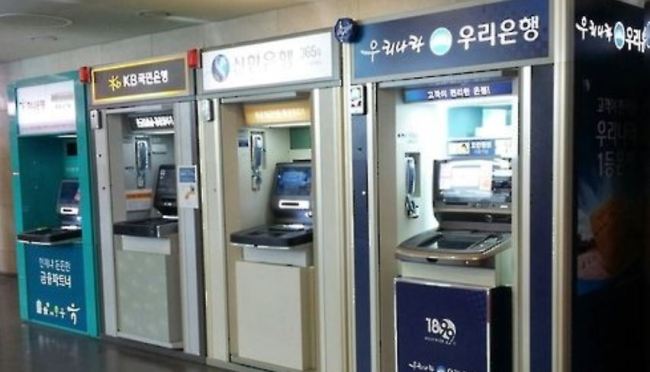Korean banks shed 7,400 jobs while making W18tr over 3 years
By YonhapPublished : July 29, 2018 - 10:51
South Korean commercial banks let go some 7,400 employees over the past three years while earning some 18 trillion won mainly by collecting interest on loans they provided to households and companies, market data showed Sunday.
The numbers come amid rising criticism that local lenders are not doing their part to create jobs and meet their social obligations, especially since they are making "easy" money from lending to people and firms with solid collateral.
Official reports made by 19 lenders showed that while they were making more money than before, they have cut the number of employees to 109,989 as of late March from 117,342 in March 2015.

Of the leading banks, KB Kookmin Bank slashed 4,325 workers in the three year period, with other big lenders all following suit.
Reflecting less money going to workers as salaries, the country's four largest lenders KB Kookmin, Shinhan, Woori, KEB Hana reported net earnings having risen to over 5 trillion won in the first half of this year.
In addition, all banks have reduced the number of brick-and-mortar operations with the total number of commercial bank branches currently standing at 6,964, down 871 from late 2012.
Critics said that while lenders have been moving to reduce their workforces, they have made a concerted effort to reduce exposure to bad debts and taken steps to make money more easily, that is hurting the flow of funds to firms that can generate growth for the country.
Of the 1,526 trillion won ($1.36 trillion) in outstanding loans, 817 trillion won, or 54.2 percent of the total, was provided to companies, with more and more going to households. The percentage is down from 67.9 percent in 1999.
From 2008 onwards, growth in loans to households stood at an annual average 6.2 percent, outpacing 5.4 percent growth for companies, the latest findings showed.
"In effect, banks are making money by reducing their exposure to potential losses that can happen if they lend money to companies and instead turning to less risky households that have contributed to the country's rising debt problem," said a market watcher.
The steady rise of household debt has been on a steady rise, potentially weighing down the local economy.
Data showed that not only have banks reduced their loans to companies, they have become more selective with all loans to businesses being granted along with solid collateral.
The percentage of secured loans to companies stood at 58.1 percent as of late 2017, up from 41.9 in 2009.
"South Korean banks needs to work more by offering better services to the public that can contribute to growth and job creation," a banking sector official said. He said that if lenders are unwilling to change, the government should implement measures to inject more competition into the sector. (Yonhap)








![[KH Explains] How should Korea adjust its trade defenses against Chinese EVs?](http://res.heraldm.com/phpwas/restmb_idxmake.php?idx=644&simg=/content/image/2024/04/15/20240415050562_0.jpg&u=20240415144419)











![[Today’s K-pop] Stray Kids to return soon: report](http://res.heraldm.com/phpwas/restmb_idxmake.php?idx=642&simg=/content/image/2024/04/16/20240416050713_0.jpg&u=)